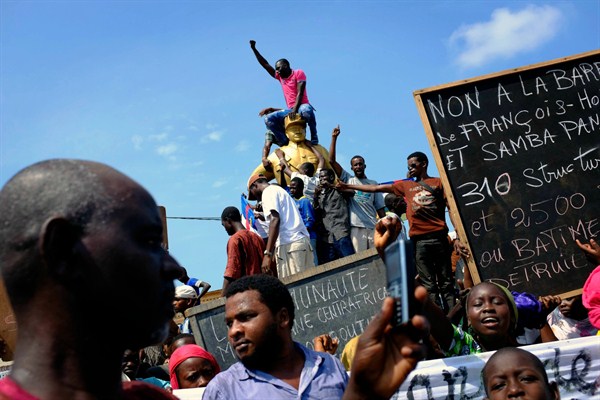After seven years of war, the Central African Republic has taken a shaky step toward peace. The United Nations announced in early February that the Central African government and 14 armed groups had agreed to a draft peace accord after 10 days of negotiations in Khartoum. The deal is a promising first step, but the drivers of conflict in CAR need to be addressed for a lasting peace to take hold, as competition for natural resources, ongoing ethnic disputes and, to some extent, religious cleavages, have all complicated past peace efforts.
The agreement, provisionally signed on Feb. 6, calls for the formation of a Truth and Reconciliation Commission within 90 days and “joint security patrols” between the Central African Armed Forces and rebel groups for 24 months to facilitate reintegration. There is also a provision in which rebel leaders will be able to form political parties after disbanding their armed groups.
There is much to celebrate about the accord. Unlike other failed efforts, this is the first deal to emerge from direct dialogue among all the warring parties. Getting so many armed groups to the table and reaching an agreement are significant milestones, and many of the stakeholders seem genuinely interested in implementing the framework. The fact that the accord includes significant concessions made on all sides is a sign of how comprehensive it is.

